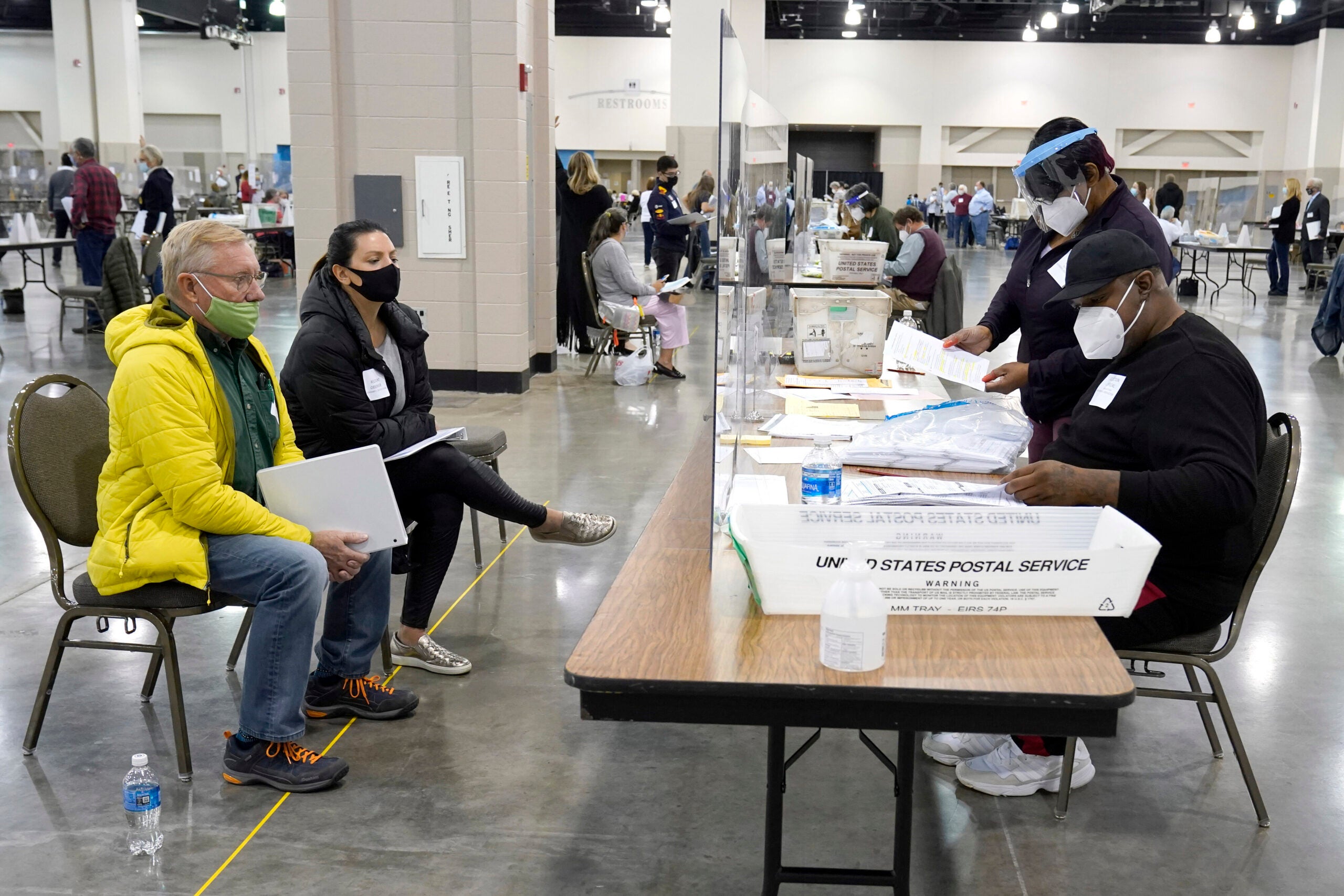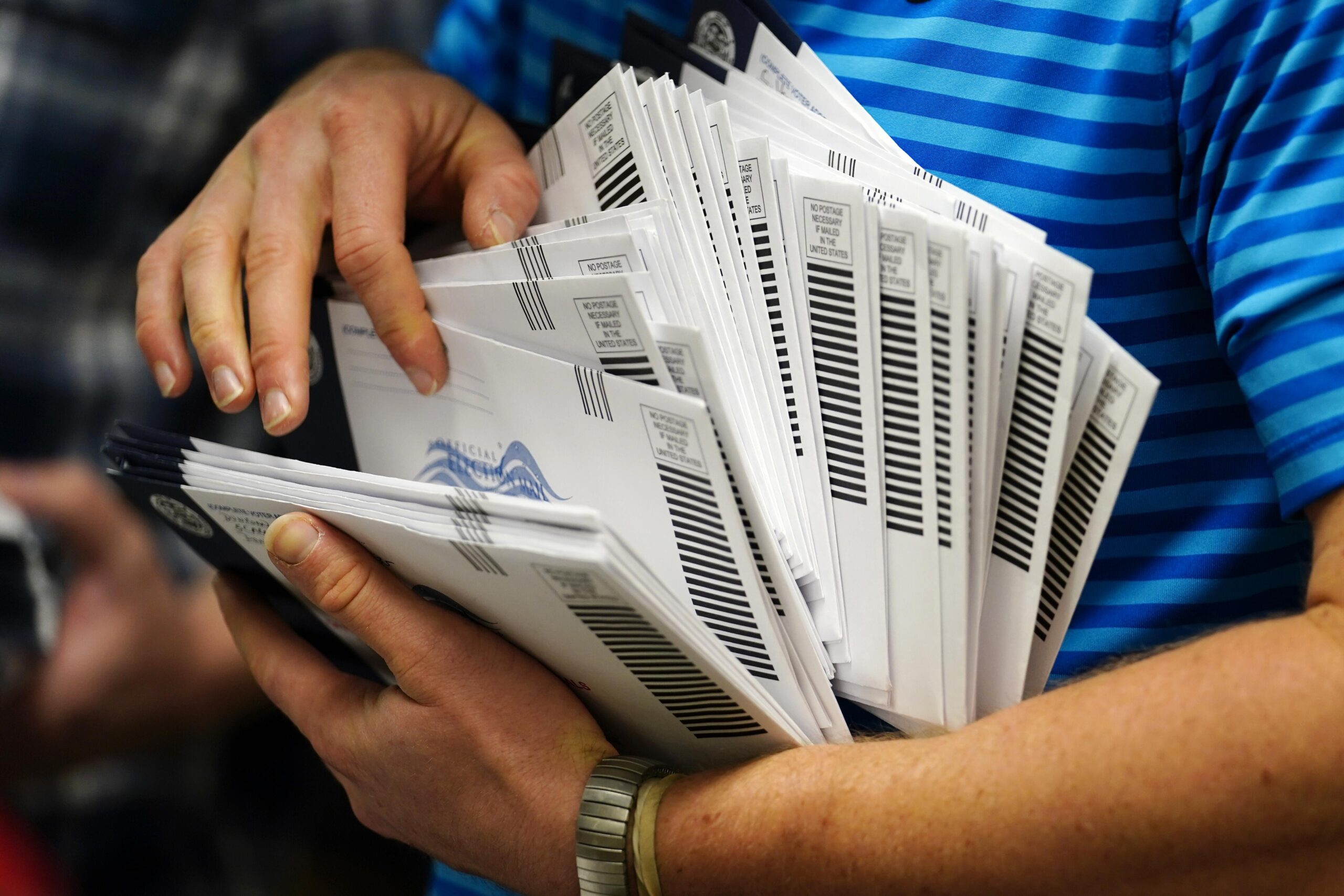Five months out from the first election of 2024, lawmakers heard public testimony Tuesday about a slate of voting-related bills.
Under the bipartisan proposals, attacks on election workers would become a felony; election workers would have access to whistleblower protections; and voters would receive text message updates about the status of their absentee ballots.
The proposal about protecting election workers comes after civil servants faced increased harassment and threats after the 2020 presidential election, when many people falsely accused workers – especially in swing states like Wisconsin – of participating in voter fraud and stealing the race from former President Donald Trump.
News with a little more humanity
WPR’s “Wisconsin Today” newsletter keeps you connected to the state you love without feeling overwhelmed. No paywall. No agenda. No corporate filter.
“Election workers are the backbone of successful elections and deserve to operate without fear for their personal safety or job security,” said André Jacque, R-DePere, who co-authored the bill, at a public hearing of the Senate Committee on Shared Revenue, Elections and Consumer Protection on Tuesday.
It would also make it a Class I felony to intentionally harm an election worker. Currently, most forms of battery are Class A misdemeanors, but this bill would provide special protections for election workers.
It would also make certain information about election officials private to prevent doxing, or the sharing of personal information about a person online.
And it offers whistleblower protection to election workers who lawfully report what they reasonably believe to be voting irregularities or fraud.
The ACLU of Wisconsin has registered in opposition to the bill because of that component.
“ACLU-WI has concerns with the bill as currently drafted, as the process for ‘lawfully reporting’ is not outlined, and the terms ‘reasonable belief’ and ‘irregularities’ are not defined,” their lobbying brief states.
The bill is supported by the League of Women Voters of Wisconsin, the Wisconsin Counties Association and the League of Wisconsin Municipalities.
Threats and harassment of poll workers has increased since 2020. A 2022 survey from the Brennan Center for Justice at the New York University School of Law found that nearly three-quarters of election officials have reported increased threats, and one-fifth reported being “somewhat or very unlikely” to stay in their jobs through the 2024 election.
Lawmakers on Tuesday also heard testimony about a proposal to create a texting service for absentee voters.
As proposed, voters could opt into a service that would alert them when their absentee ballot application had been received, and another when the ballot itself was received.
The texting service would be folded into the existing MyVote Wisconsin system. It would not tell voters if there is a problem with the absentee ballot in need of curing.
The bill’s author, Rep. David Steffen, R-Green Bay, said he hoped that the service could eventually be fleshed out to include more information. He said the priority is to increase transparency and convenience as soon as possible.
“People have certainly found that absentee ballot is a safe, positive, efficient way to vote in Wisconsin, and it has grown in popularity in use,” he said. “One of the things so that we can do as a state — and sometimes it’s rare that we can actually do this — is that we can provide a higher level of customer service, and increase the level of transparency and security.”
The proposal is supported by a wide range of voting rights groups, including All Voting Is Local Action, Common Cause in Wisconsin, League of Women Voters of Wisconsin, and Secure Democracy USA.
It is also supported by disability rights groups, who say that absentee voting is particularly important to people with disabilities.
“Many (voters with disabilities) are not drivers or may have reasons related to their health that makes it difficult for them to vote in person,” said Barbara Becker of Disability Rights Wisconsin. “And we often hear from people (about) their anxiety about wanting to make sure that that request gets in on time and most important that their vote is counted.”
Wisconsin Public Radio, © Copyright 2025, Board of Regents of the University of Wisconsin System and Wisconsin Educational Communications Board.







